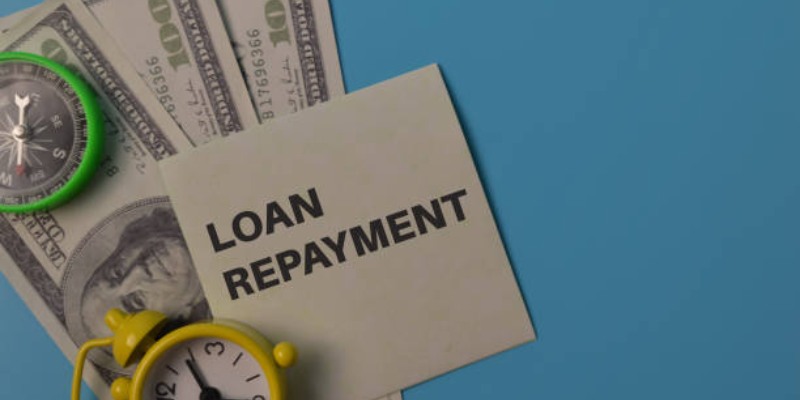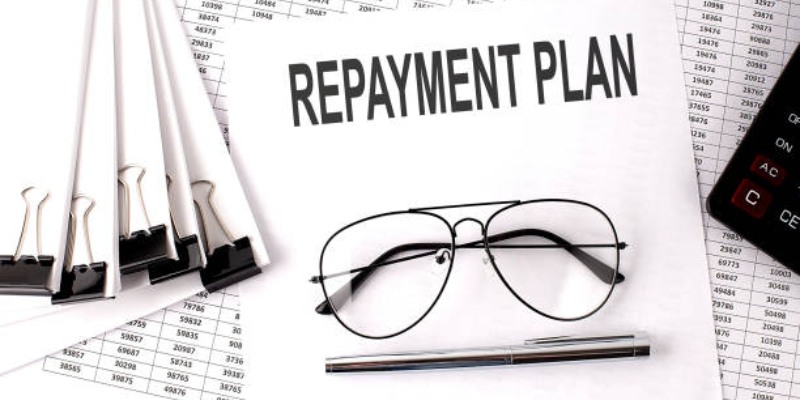Fashion
White Outfits For Women: Fresh, Clean, And Chic Looks
1757645952000
Everyone wants financial freedom. However, not everyone understands the weight that comes with borrowing money and the discipline required to repay it. Loans aren't evil. They can help people navigate tough times, grow their businesses, or finance their education. However, when repayment time arrives, and no plan is in place, things can quickly spiral out of control.
Everyone wants financial freedom. However, not everyone understands the weight that comes with borrowing money and the discipline required to repay it. Loans aren't evil. They can help people navigate tough times, grow their businesses, or finance their education. However, when repayment time arrives, and no plan is in place, things can quickly spiral out of control.
Many people default on loans not because they don't want to pay but because they haven't built their budget around it. The money enters their account, and it's like fireworks in their brain. Before they know it, they're back to square one, owing with interest. That cycle needs to stop.

Some people borrow and don’t even remember how much they’re supposed to pay back. That’s not maturity. If a loan was taken, it means a repayment plan should be in place — mentally, physically, and financially.
Start by writing down every loan owed: the lender's name, the amount borrowed, the interest rate, and the due date. Don't just rely on emails or SMS. Write it out. Seeing the total number on paper is different from just having it in your head. It hits harder and forces clarity.
Avoid the trap of taking a second loan to pay off the first one. That's not a strategy. That's a setup.
Once the full loan amount is known, divide it into manageable monthly amounts. For instance, if \$3,000 needs to be paid over 12 months, that’s \$250 monthly — not including interest. Add that to your monthly budget as a fixed expense.
That monthly breakdown is not a suggestion. It's an obligation. Like rent. Like light bill. Like feeding. Don’t touch that money because you “need new shoes” or because a new phone just dropped. Debt doesn’t care if you’re trendy.
Here's where most people stumble. Budgeting isn't about how much is earned; it's about how much is spent. It's about how wisely the money is spent. Some earn $5,000 and can't save a dime. Others earn $1,500 and pay off debts on time. It's not magic. It's discipline.
Wants are not needs. Eating at Uber Eats every evening is not a survival strategy. Subscribing to five streaming platforms is not a need. Weekly brunches and spontaneous trips are not compulsory.
Loan repayments are not optional. They are scheduled responsibilities. Cut off luxuries until debts are cleared. It doesn’t make one poor. It shows one understands priorities.
This is not for show. This is for structure.
Fifty per cent of the income is allocated to essential needs, including rent, groceries, transportation, and minimum debt payments.
30% goes to wants: entertainment, outings, shopping.
20% goes to savings and extra debt payments.

If the loan payment is urgent, adjust it as follows: 50% to needs, 20% to wants, and 30% to repayments. Sacrifices are short-term. Freedom is the long-term reward.
If 50% of income can't even cover needs and debt together, it's time to find an extra stream of income. The math isn't matching, and that's a red flag.
Human beings forget. Life gets busy. However, forgetting to pay a loan can be costly. Late fees and interest will humble even the most confident spenders. Automate the payment. Schedule it for the same date every month, preferably close to payday.
Some think keeping money in their account “just in case” is wise. But if that “just in case” doesn’t happen, the money disappears into wants. Discipline is when the payment is made without even seeing the money.
If the lender doesn't support automation, consider creating a calendar reminder or setting up a direct transfer to a separate account specifically for loan payments.
Emergencies will come. That’s life. A car will break down. A child will fall sick. A job may delay salary. That’s why an emergency fund is key.
Without a cushion, when real life hits, the first thing sacrificed is the loan payment. And that's how the late fees and collection threats begin.
Even $50 monthly into an emergency fund is better than nothing. Over time, it builds safety.
Here’s where many lose the plot. Already paying one loan, they take another. Then another. Suddenly, they’re juggling four lenders, skipping payments, and hoping no one calls.
This is not hustling. It’s digging a hole.
Avoid it. If a loan is still being paid, pause new credit applications. Stop testing how many loans can be handled at once. It's not a competition. If money is tight, consider taking on temporary gigs, selling unused items, or reducing your expenses to make ends meet. But don't borrow to solve the consequences of borrowing.

If things get genuinely bad, don’t disappear. Communicate. Lenders would rather have someone explain and propose a new plan than disappear into thin air. Silence is not strength. It’s risky.
Ask for loan restructuring. Request for additional months or a lower interest rate. Some lenders may agree. Some won't. But asking is better than defaulting.
Also, if financial Stress becomes overwhelming, consider talking to someone. Debt is heavy. However, it's not worth spiralling out of control.
Each month a payment is made, it's a win. Celebrate the progress — not with money, but with motivation. Watch the balance drop. Watch the Stress ease. One day, that final payment will clear, and the air will feel lighter.
Budgeting for loan repayment isn’t punishment. It’s strategy. It’s the roadmap to freedom. The earlier the plan is built and followed, the faster financial peace arrives.
Do you like this article?
Fashion
1757645952000
Fashion
1757645952000
General Finance
1757645995000
General Finance
1757645995000
Fashion
1757645952000
Mother & baby
1757645852000
Fashion
1757645952000
Mother & baby
1757645852000
Career & Education
1757645874000
Mother & baby
1757645852000









